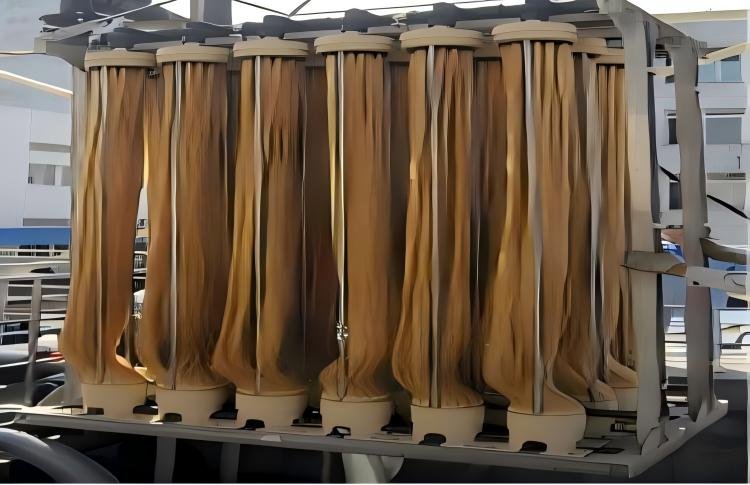In the world of water treatment, ultrafiltration (UF) has become an essential technology for improving water quality and ensuring clean, safe water. Among the different methods, Thermally Induced Phase Separation (TIPS) ultrafiltration has gained significant attention due to its high efficiency and cost-effectiveness. This blog explores the principle of TIPS ultrafiltration, its application in wastewater treatment, and the future trends in this field. We will also discuss the involvement of leading brands such as Dow, GE Water, and Pall Corporation, which are pioneering advancements in membrane technology.
Understanding the Principle of TIPS Ultrafiltration
Thermally Induced Phase Separation (TIPS) is a membrane fabrication method that uses heat to separate polymer phases, resulting in a porous structure that is ideal for ultrafiltration applications. In simple terms, TIPS is based on the process of dissolving a polymer in a solvent and then cooling it to induce phase separation. As the temperature drops, the solvent evaporates, leaving behind a porous, sponge-like membrane.
This process allows for precise control over the membrane’s pore size, making TIPS ultrafiltration membranes ideal for applications where separation of fine particles is necessary, such as in wastewater treatment and drinking water purification.
The Role of TIPS Ultrafiltration in Wastewater Treatment
Wastewater treatment is a critical process for maintaining clean water supplies. Ultrafiltration membranes, particularly those made using the TIPS method, have been widely adopted in this field due to their efficiency in separating contaminants. The TIPS ultrafiltration membranes can effectively remove suspended solids, bacteria, viruses, and other harmful substances from wastewater, making water safe for reuse or discharge.
A key advantage of TIPS ultrafiltration is its low energy consumption. Compared to other filtration methods, TIPS membranes typically require lower operating pressures, which results in reduced energy usage. Additionally, TIPS membranes are known for their long lifespan and resistance to fouling, making them a more sustainable option for long-term water treatment solutions.
Leading brands like Dow and GE Water are continuously innovating in the ultrafiltration space. Dow’s IntegraPac™ ultrafiltration membranes, Microza MUCN-620A3,for example, use advanced TIPS technology to provide excellent performance in wastewater treatment applications. These membranes are designed to handle high fouling conditions, offering increased reliability and efficiency.
Advantages of TIPS Ultrafiltration in Wastewater Treatment
- High Filtration Efficiency: TIPS membranes offer superior removal of contaminants, including suspended solids, microorganisms, and colloidal particles.
- Low Energy Consumption: The process of TIPS ultrafiltration operates at lower pressures, reducing energy requirements compared to traditional filtration methods.
- Long Membrane Lifespan: TIPS membranes are durable and resistant to fouling, which translates to less frequent cleaning and replacement.
- Sustainability: The TIPS ultrafiltration method promotes sustainability by reducing energy consumption and minimizing membrane waste.
The Future of TIPS Ultrafiltration in Wastewater Treatment
As the demand for clean water increases globally, the need for advanced, cost-effective water treatment solutions becomes more pressing. TIPS ultrafiltration technology is expected to play a crucial role in meeting these demands, especially in industrial and municipal wastewater treatment.
In the future, we can expect several key developments in TIPS ultrafiltration:
- Improved Membrane Materials: Advances in polymer science and materials engineering will result in membranes with even smaller pore sizes and enhanced filtration capabilities.
- Integration with Other Technologies: TIPS ultrafiltration is likely to be combined with other water treatment technologies, such as reverse osmosis (RO) and activated carbon filtration, to create more efficient and comprehensive treatment systems.
- Increased Automation and Monitoring: The integration of smart sensors and AI-driven systems will allow for real-time monitoring of the filtration process, leading to more efficient operation and reduced maintenance costs.
- Cost Reductions: As the technology matures and adoption increases, the cost of TIPS ultrafiltration membranes is expected to decrease, making it a more accessible option for a wider range of applications.
Conclusion
Thermally Induced Phase Separation (TIPS) ultrafiltration is a promising technology that plays an essential role in modern wastewater treatment. With its high efficiency, low energy consumption, and long lifespan, TIPS ultrafiltration is positioned to become a key player in the global water treatment industry. Leading brands such as Dow, GE Water, and Pall Corporation are at the forefront of this innovation, continuously advancing the technology to meet the growing global demand for clean water.
As we look toward the future, it is clear that TIPS ultrafiltration will continue to evolve, offering even greater efficiency, sustainability, and cost-effectiveness. The potential for integration with other technologies and the ongoing improvements in membrane materials will further enhance its role in ensuring access to clean water worldwide.
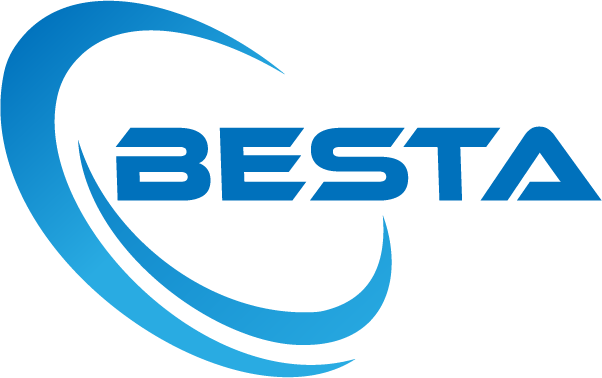
 MBR Membrane
MBR Membrane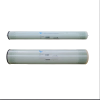 Reverse Osmosis Membrane
Reverse Osmosis Membrane Residential Ro Membrane
Residential Ro Membrane UF Membrane
UF Membrane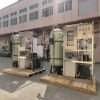 Water Treatment Plant
Water Treatment Plant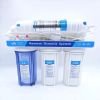 Residential Ro Machine
Residential Ro Machine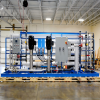 Brackish Ro System
Brackish Ro System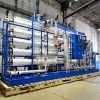 Sea water system/SW RO plant
Sea water system/SW RO plant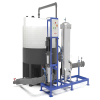 Membrane Cleaning System(CIP)
Membrane Cleaning System(CIP)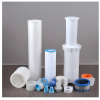 Consumables Accessories
Consumables Accessories